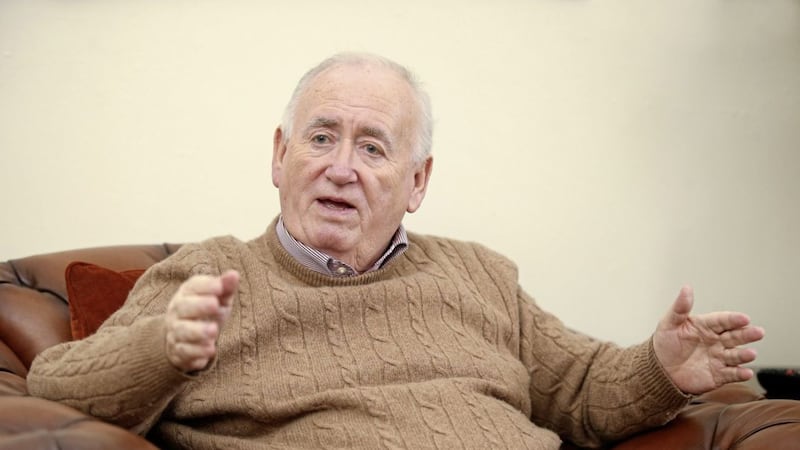The number of people who could be in line for compensation payouts as a result of the Supreme Court ruling in favour of Gerry Adams could be as many as 600.
Republicans and loyalists who were interned without trial in the early 1970s but whose papers were not signed by the then secretary of state may have a case.
Others are also in line to have convictions connected to their internment quashed.
Among them Sinn Féin MLA Fra McCann, and a number of others who were involved in an escape attempt in 1974, during which Co Tyrone republican Hugh Coney died after being shot in the back by a British soldier.
Around 30 prisoners were involved in the escape, with all the survivors later charged with offences connected to the attempt to tunnel out of Long Kesh.
Mr McCann was one of the last internees to be released from Long Kesh in December 1975 when the British government ended the policy of internment.
Solicitor, Padraig Ó Muirigh said he represents over 300 people now headed for the High Court and that his office has been " inundated with queries from former internees" since the judgment.
"The Supreme Court judgment in the Gerry Adams case is very significant and has the potential to impact on many of our cases", he said.
"We are currently reviewing hundreds of Interim Custody Orders we have in our possession to ascertain if the Adams judgment has any bearing on their case".
On Wednesday the Supreme Court ruled in favour of the former Sinn Féin leader in what has been viewed as a landmark judgment.
Announcing the Supreme Court's ruling at a remote hearing Lord Kerr - the former Lord Chief Justice of Northern Ireland - said the court had unanimously allowed Mr Adams' appeal and had quashed his convictions.
The court ruled his detention was unlawful, because the interim custody order (ICO) used to detain him in July 1973 was not authorised by Willie Whitelaw, who was Northern Ireland secretary of state at the time.
Mr Ó Muirigh said the judgment "has wider implications than those ICO’s that don’t bear the signature of the relevant British Secretary of State".
"There is the question of whether 'personal consideration' was given by the Secretary of State, regardless of whether the document is signed or not", he added.
"I don’t see how we can resolve that issue without some verification from the authorities.
"We will be writing to the Crown Solicitors Office on that issue and we may need to issue proceedings in each case if we don’t get a satisfactory response.
"There is also the additional question of those who were convicted of offences whilst interned.
"For example, we have been contact by a number of former internees who were charged and sentenced in relation to the attempted escape from Long Kesh which led to the death of Hugh Coney.
"If any of those former internees were unlawfully interned it will follow, according to the Adams judgment, that their convictions should be quashed. We could see many more cases before the Court of Appeal as a result of this judgment also", he added.







